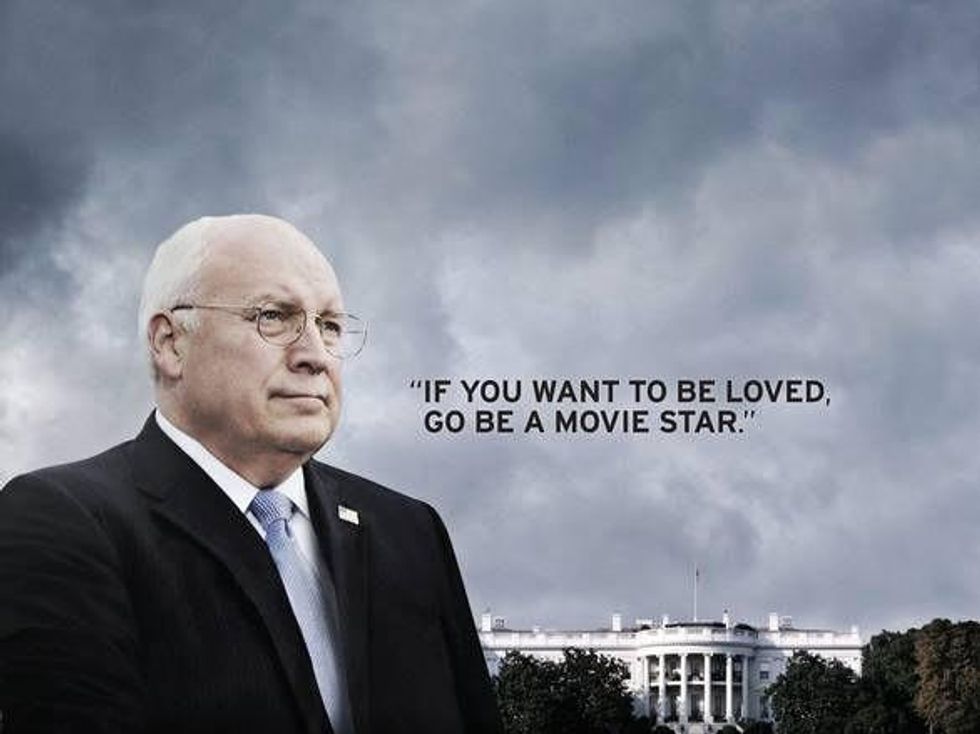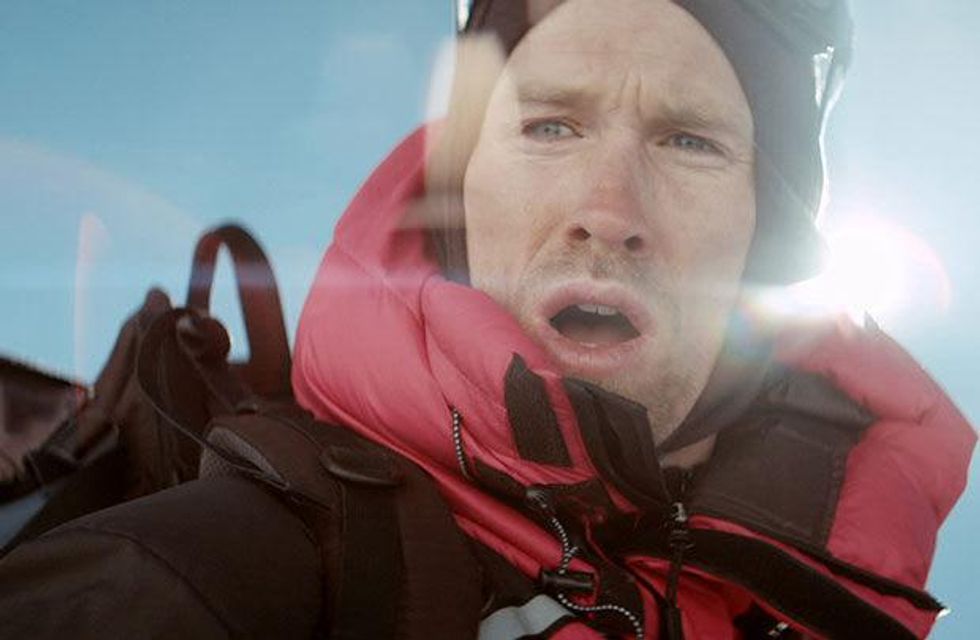Sundance Film Festival 2013
Dick Cheney, Anita Hill and late-term abortion doctors are focus of Sundance documentaries
PARK CITY, Utah — The Sundance Film Festival is in full swing, with lots of stars (Jennifer Hudson, Alicia Keys, Naomi Watts) and filmgoers eager to offer instant analysis of the movies they just saw as they wait in line for shuttle buses or at theaters and restaurants.
After finding opening night drama May in the Summer, the story of a young American-Jordanian woman with second thoughts about her wedding, to be predictable, I decided to purge myself of the experience by only attending documentaries for the next 48 hours.
And how can you go wrong with documentaries at Sundance when four of the nominees for Best Documentary at next month's Oscars were showcased at last year’s festival?
Among the more thought-provoking documentaries I have seen at this year's edition of the festival are:
In 2009, George Tiller, one of only five U.S. physicians who perform third-term abortions, was murdered at his church in Wichita. Filmmakers Martha Shane, in her directorial debut, and Lana Wilson, in her first film, let the remaining four physicians tell their stories in After Tiller.
For the first time I can remember at Sundance, we had to go through metal detectors to enter the theater and there were armed guards everywhere.
For the first time I can remember at Sundance, we had to go through metal detectors to enter the theater and there were armed guards everywhere.
The film allows you to hear in the words of the patients and their physicians the personal, professional, ethical and spiritual struggles that they face. As moving and emotional as the film is, it could have been tightened up for maximum impact and benefited from a more experienced editor.
Even so, I fear this film will not see the light of day commercially given its controversial topic. And that is a shame.
Whatever your views may be on late-term abortion, this film will challenge them. And isn’t that what a good documentary is all about?
In 1991, law professor Anita Hill was propelled into the center of national politics when she accused Supreme Court Justice nominee Clarence Thomas of sexual harassment. Hill was attacked in public hearings before the all-male Senate Judiciary Committee and Thomas was confirmed.
In Anita, a documentary tribute to Hill, Oscar-winning filmmaker Freida Mock revisits these events which seem incomprehensible in retrospect. We learn there were corroborating witnesses that were not allowed to testify and are reminded that Hill successfully passed a lie detector test.
Though the film tends to lionize Hill as "St. Anita," it is a powerful film and history lesson.
It is painful to watch how the accuser became the accused. Interestingly, Hill shows no bitterness.
Although she at first tried to quietly retreat into the private life, Hill has taken on the public role of shining a light on sexual harassment and bringing about change through legislation and education.
Hill, her longtime boyfriend and many of her family members attended the showing and most of the audience questions afterwards were from grateful women thanking her for making a difference. Though the film tends to lionize Hill as "St. Anita," it is a powerful film and history lesson.
The World According to Dick Cheney
Some might think there could not be a less welcome subject at Sundance, with its liberal constituency, than Dick Cheney. Not true. Sundance has never shied away from polarizing figures be they on the left or the right. One of Sundance’s most popular documentaries was Reagan, shown in 2011.
I was excited about gaining a better understanding of Cheney in the hands of award-winning filmmaker R.J. Cutler (The September Issue). It starts off promisingly enough with Cheney giving short answers to questions.
During a question-and-answer session, some in the audience took Cutler to task for being too easy on Cheney while others complained the film didn't reveal anything new.
His favorite meal? Spaghetti.
His favorite virtue? Integrity.
When asked to name his greatest fault, Cheney replies, "I don't spend a lot of time thinking about my faults, would be the answer."
Oh-oh.
I gained hope again as Cheney opened up about flunking out of Yale University, landing in jail twice for DUI, and working as a lineman for an electrical utility before getting his life together. Twelve years later, in his early 30s, he was the youngest White House chief of staff in U.S. history.
But the rest of the film reveals little we didn't already know about Cheney. It ignores such topics as his loving relationship with his family (he is supportive of his gay daughter) and his controversial tenure at Halliburton, instead spending way too much time on his mentor, former Secretary of Defense Donald Rumsfeld.
A long sit-down interview with Cheney, which is interspersed throughout the movie, yields precious little new information. One suspects that Cutler agreed to stringent ground rules to snag the interview and shied away from confrontation.
During a question-and-answer session, some in the audience took Cutler to task for being too easy on Cheney while others complained the film didn't reveal anything new. You can judge for yourself as it will premiere on Showtime on March 15.
For some reason any film about dangerous mountain climbing always draws audiences. Maybe it's the scenery that attracts us or the opportunity to experience the thrill and danger vicariously. The Summit is an absorbing tale of a doomed 2008 expedition to Pakistan’s K2, the second highest peak in the world, in which 11 people died.
Filmmaker Nick Ryan has some amazing footage from the climbers but seems ambivalent how to approach the story.
Filmmaker Nick Ryan has some amazing footage from the climbers but seems ambivalent how to approach the story.
The narrative moves from the mystery of what really happened, to reenactments, to interviews with survivors, the heroism of Sherpa Pemba Gyalje and finally interviews with Italian mountain climber Walter Bonatti's whose 1954 expedition was the first to summit K2.
I had whiplash trying to figure out which one of these of these angles to focus on. In trying to please too many, The Summit ended up falling short of the peak.
Ah, but I must be making a mountain of a molehill since, the film was picked up by Sundance Selects.




